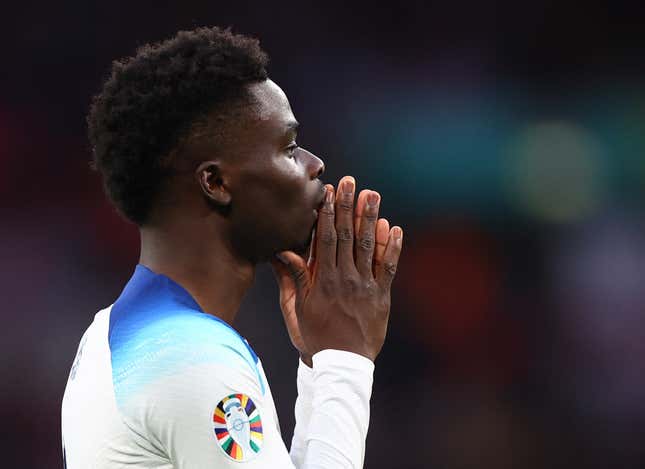
Black professional athletes find themselves in a particularly painful situation at this moment in social media. Never before have they been expected to be so present online, where millions of fans follow their accounts, help build their careers, and often support their activism.
Yet at the same time, rampant racist abuse is being hurled at them on the very same platforms, in some cases damaging their mental health, and in all cases providing a depressing reminder of humanity’s potential for cruelty.
Now some players are reportedly turning to artificial intelligence tools that promise to comb through content and delete or hide abusive messages.
According to the Associated Press, soccer players in the UK and elsewhere are using software from GoBubble, which employs AI to filter out messages. GoBubble has users “from the Premier League down to the fourth division in English soccer,” as well as around Europe and in Australia, AP reports.
Blocking toxic content
Explaining the technology, called Emotion AI, in a 2022 press release, GoBubble said that instead of using keywords or context analysis, the technology analyzes user-generated behavior “across multiple languages in text, image, video, audio, and emojis to identify and block toxic and potentially harmful content.” The company had not responded to a request for comment by the time of publication.
GoBubble co-founder and CEO Danielle Platten explained in the release that this helps solve both the problem of users seeing abusive content, and of human moderators being traumatized by their role in identifying and blocking such content.
How to stop the trolls
Big tech companies like Meta, which owns Facebook and Instagram, and Twitter have long struggled to identify and deal with abusive content, though Twitter has taken a hands-off approach lately, under new owner Elon Musk. Their targets include the racism prevalent in soccer, where it accounted for more than half of abusive messages last season, according to Kick It Out, an NGO working to fight discrimination in sport.
After the 2020 European Championship final, several players, including three Black players from the England team who missed penalties, were subjected to “torrents” of abuse, Time wrote, noting that while the platforms worked to take down racist slurs and emojis, they were often visible for hours.
Meta told AP it was still working hard to tackle abuse. Governments are also trying to take action, with the European Union crafting a Digital Services Act that would seek to curb abuse ranging from racism to child exploitation to misogyny. The UK has similar legislation in the works.
In January, a man who racially abused Brentford player Ivan Toney was sentenced to a three-year ban from all UK soccer stadiums.